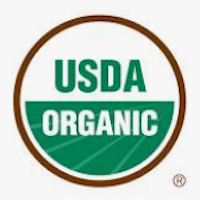Highlights and significant changes of USDA’s revised regulations on organic foods

On March 19, 2024, the USDA implemented revised regulations on organic foods. The overall purpose of the revisions is to strengthen enforcement of the regulations, with a focus on greater accountability for organic food fraud. This article does not go into every detail of the changes. That would be a long and rather dull read, and you could just as well go read the new regulations for yourself. But it does highlight some of what this writer believes are the most significant changes, and to the extent your compliance with the organic regulations has been on autopilot, this is a reminder to take the wheel and make sure you know how the new regulations affect you.
Perhaps the most significant change is to the scope of what it means to “handle” organic products. Before the revisions, handling meant selling, processing, or packaging agricultural products. Now, handling includes trading, facilitating the sale or trade on behalf of a seller or yourself, importing and exporting, as well as a number of other activities including conditioning, containerizing, and labeling. Thus, the universe of individuals and entities that could be on the hook for organic fraud, and who may need to be certified by the USDA, just got significantly larger. What this means is that even if all you do is hit buttons on a computer keyboard, and you never lay your hands on a piece of produce, you can still be responsible if the product you are trading turns out to be falsely labeled or otherwise noncompliant. There are exemptions from certification, but you still need to be compliant with the rules.
There are some changes in exemptions under the revised rule. Restaurants and stores that cook or prepare food and then sell it to consumers at the same location are exempt. But online sellers are not. Companies that store packaged and sealed products are exempt, but those who store bulk and unpackaged products must be certified. Customs brokers and logistics brokers – those who merely connect operations with carriers and storage facilities – are exempt. Likewise, businesses whose only job is to transport products are exempt, but handlers must still use audit trails and traceability to ensure that their carrier does not compromise the organic integrity of the product.
With respect to fraud, the term “organic fraud” is now defined, as “deceptive representation, sale or labeling of nonorganic agricultural products or ingredients as . . . organic.” New regulations relating to traceability make it easier to follow a product from birth to sale. New language requires certified operations to keep records that “span the time of purchase or acquisition, through production, to sale or transport and be traceable back to the last certified operation.” And certifying agents must conduct risk-based supply chain traceability audits to trace products across multiple links in a supply chain.
These are just some of the changes that USDA has made to ensure that consumers paying a premium for organic products are getting what they pay for. If you are part of the chain of organic products, then make sure you know how the changes affect your organization.